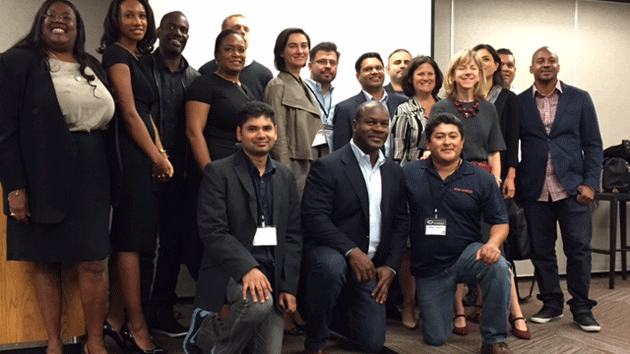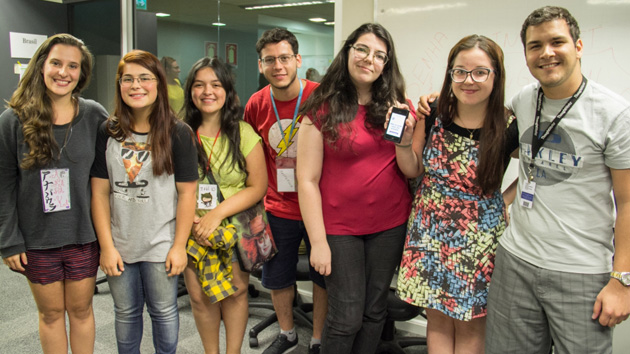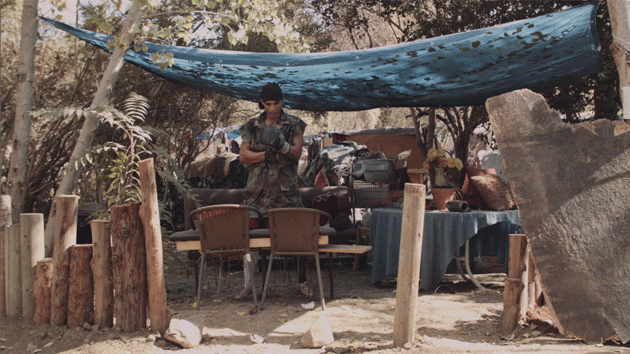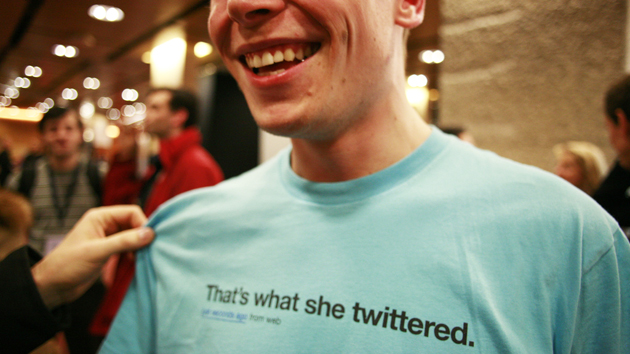
The tech entrepreneurs who competed at this week's PUSHTech 2020 Summit.Photo by Josh Harkinson
The tech startup world is notorious for its lack of women and non-Asian minorities, as anyone who has attended the TechCrunch Disrupt pitch-a-thon (or seen Mike Judge’s spoof of it) can attest. But it’s not like the best concepts are always invented by tech bros.
There are plenty of great startups led by women, blacks, and Latinos—they just don’t get as much attention from investors and the press, diversity advocates say. To prove it, on Wednesday, the Rev. Jesse Jackson Sr. held his own San Francisco tech conference, PUSHTech 2020, in which none of the 10 startups competing for a $10,000 prize was led by a white guy.
“This gonna be real hard to man-in-the-middle this device,” proclaimed contestant Marcus Eagan, cofounder of Nodal Industries, referring to a common hacker exploit. A panel of judges from Cisco Ventures, Google for Entrepreneurs, Intel Capital, and other VC firms listened intently as he flipped through slides detailing his invention: a secure way to connect home computers with corporate networks.
Eagan, a 25-year-old black dude with wireless glasses and a fanny pack, came up with his idea after consulting for Target in the wake of a $160 million data breach. “Target wishes they were using Nodal,” said Eagan, who says he’s already sold versions to employees of the US Army Cyber Brigade, HP, and IBM. “The home network poses the greatest threat to the corporate network in 2015. Everybody works from home—or they don’t have a job.”
Few of the contenders pitched products aimed exclusively at minority groups—though several put a more inclusive flavor in the mix. Take the black-owned startup Oneva, an online referral site for background-checked nannies and babysitters. For her presentation, CEO Anita Darden Gardyne used a photo of Claire Huxtable from The Cosby Show as an example of a busy professional mom and a photo of Alice, the white nanny from The Brady Bunch, as a caregiver; the Oakland-based company’s other marketing materials use a similar approach. “That’s the world in which we live,” Gardyne told me. “So for me, those images just came naturally.”
The 10 contestants were chosen from a pool of 80 applicants by several groups that incubate diverse tech talent. Many minority-led startups have the requisite business savvy and tech chops but lack the angel-investor connections young companies need to get off the ground, says Wayne Sutton, the co-founder of BuildUp, which promotes “underrepresented entrepreneurs.” By bringing these businesses into the fold, he hopes to sustain and expand upon Silicon Valley’s culture of innovation. “Why do we keep seeing chat apps or photo share apps or emoji apps? Because the people working on those don’t have the same problems,” he told me. “That’s why we need funding for the people who solve problems and come from different backgrounds.”
Illustrating Sutton’s case for diversity was the competition’s winner: eHarvestHub, a website that uses sophisticated product tracking technology to help small farmers sell directly to large grocers and other retail outlets without a middlemen. Founder Alvaro Ramirez grew up in Nicaragua, where his father lost his small coffee farm to larger competitors. “It was like, nobody helps the little guy,” he says. eHarvestHub is already working with eight small farms, including the Bay Area’s well-known Frog Hollow Farm, and projects $200 million in revenue within five years.
I ran into Ramirez at the end of the conference during a drinks-and-soul-food reception at Yelp headquarters. We were standing next to a Sony PlayStation and several large bouncy balls covered in crocheted yarn. He was excited by all the money and advice that seemed to be pouring in—and just to be in the digs of such a well-known tech company. “This is what you know your future needs to look like,” he said. “So it’s cool to come out here and experience that.”

















